The EU will undertake voluntary nuclear stress tests
Adelina Marini, March 23, 2011
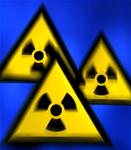 The natural disaster in Japan, which made the entire world nervous because of the failures in several reactors in the country, will be in the centre of the development of a set of criteria for nuclear stress tests in the European Union. This becomes clear from the conclusions of the extraordinary Energy Council in Brussels on Monday, in which EU Energy Commissioner Gunter Oettinger took part, together with the EU ministers of economy, energy and transport.
The natural disaster in Japan, which made the entire world nervous because of the failures in several reactors in the country, will be in the centre of the development of a set of criteria for nuclear stress tests in the European Union. This becomes clear from the conclusions of the extraordinary Energy Council in Brussels on Monday, in which EU Energy Commissioner Gunter Oettinger took part, together with the EU ministers of economy, energy and transport.
In spite of the urgency of the extraordinary council, both Gunter Oettinger and Hungarian Minister for National Development Tamás Fellegi, whose country is now presiding the EU, said that the sole purpose of the meeting was to discuss the current crisis in North Africa and Japan and possible impact on energy markets, especially 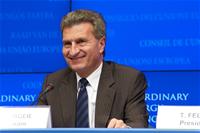 the EU energy market. After taking stock of the fact that so far the member states are not directly affected by the two crises, the ministers and the Commission (represented by Mr Oettinger) focus significantly on nuclear energy safety.
the EU energy market. After taking stock of the fact that so far the member states are not directly affected by the two crises, the ministers and the Commission (represented by Mr Oettinger) focus significantly on nuclear energy safety.
As the Energy Commissioner announced last week in the European Parliament, the EU will hold stress tests, the purpose of which will be to check the safety of the nuclear power plants in the Union. However, there is yet consensus to be reached on the common 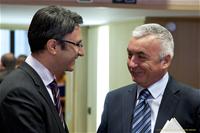 criteria for the tests, given the fact that the 143 nuclear power plants in the EU are with different age, they are built with different technologies and have different capacities. Moreover, the nuclear stress tests are absolutely voluntary, although Fellegi and Oettinger assured that the ministers of all member states expressed willingness to participate. Bulgaria was represented at the Council by Traycho Traykov, Minister for Economy, Energy and Tourism.
criteria for the tests, given the fact that the 143 nuclear power plants in the EU are with different age, they are built with different technologies and have different capacities. Moreover, the nuclear stress tests are absolutely voluntary, although Fellegi and Oettinger assured that the ministers of all member states expressed willingness to participate. Bulgaria was represented at the Council by Traycho Traykov, Minister for Economy, Energy and Tourism.
And one more important thing: the definition of the common criteria for safety assessment will be based also on the results of the investigation of the causes for the failures in several reactors at the Japanese Fukushima-1 plant. This is why Gunter Oettinger underlined that special focus needed to be paid on EU nuclear power plants' cooling systems, the back-up systems for electricity supply and the emergency power supply networks.
"We have to look at type reactors, the contingency, the emergency plans and there are other possible eventualities such as crushing planes and cyber attacks, which we have to keep in mind as well", the Commissioner added. Not less an important question, he said, was the problem with nuclear waste, the storage of which was recently raised again as an issue in the Union.
According to Gunter Oettinger also important is the nuclear safety directive to be fully transposed into national legislation. The directive has been approved in 2009 and the deadline for its transposition is July 22 2011. Bulgaria did this last year through amendments in the Safe Usage of Nuclear Energy Law. On his part, the Hungarian minister of national development added that the main purpose of the stress tests would be to see whether there are and what are the contingency and emergency plans of the member states.
"As a result of these tests and as a result of what we've learned from the events in 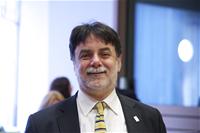 Japan, there are going to be specific conclusions drawn and that should allow us to revise the need of further legislative steps above and beyond of what's already been established". All EU member states are invited to take part in the stress tests, not only those who use nuclear energy. 14 member states in the EU use nuclear energy, while 13 do not. Also invited for the tests are the energy companies and operators, especially the operators of nuclear power plants. In conclusion the Hungarian minister pointed out that it was very important at this time to resist pressure as from the public so from the economy in order to avoid hasty decisions.
Japan, there are going to be specific conclusions drawn and that should allow us to revise the need of further legislative steps above and beyond of what's already been established". All EU member states are invited to take part in the stress tests, not only those who use nuclear energy. 14 member states in the EU use nuclear energy, while 13 do not. Also invited for the tests are the energy companies and operators, especially the operators of nuclear power plants. In conclusion the Hungarian minister pointed out that it was very important at this time to resist pressure as from the public so from the economy in order to avoid hasty decisions.
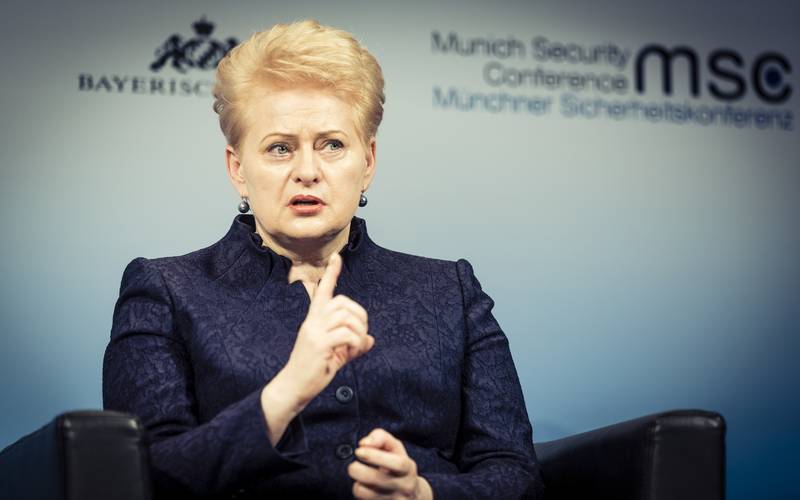 Dalia Grybauskaite | © MSC/Koerner
Dalia Grybauskaite | © MSC/Koerner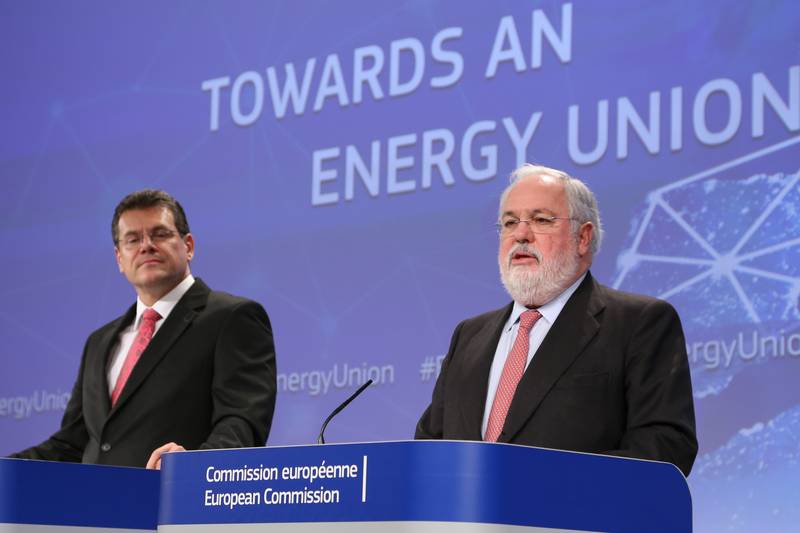 Maros Sefcovic, Miguel Arias Canete | © European Commission
Maros Sefcovic, Miguel Arias Canete | © European Commission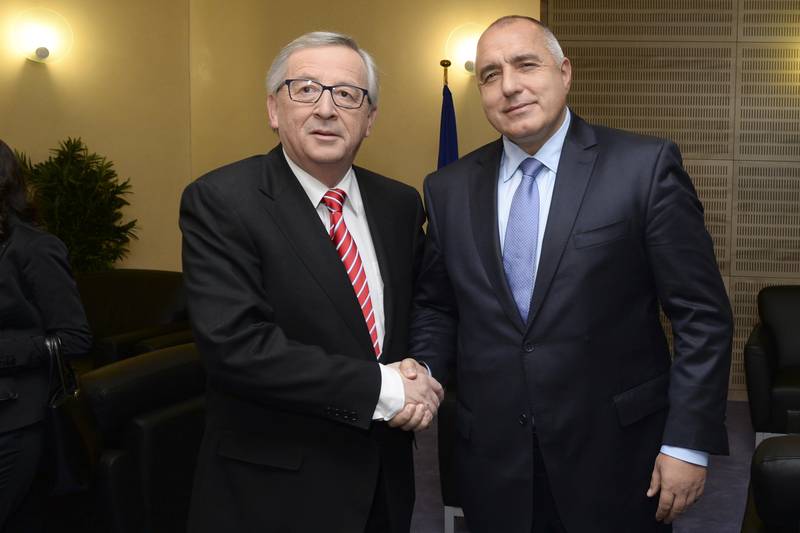 Jean-Claude Juncker, Boyko Borissov | © European Commission
Jean-Claude Juncker, Boyko Borissov | © European Commission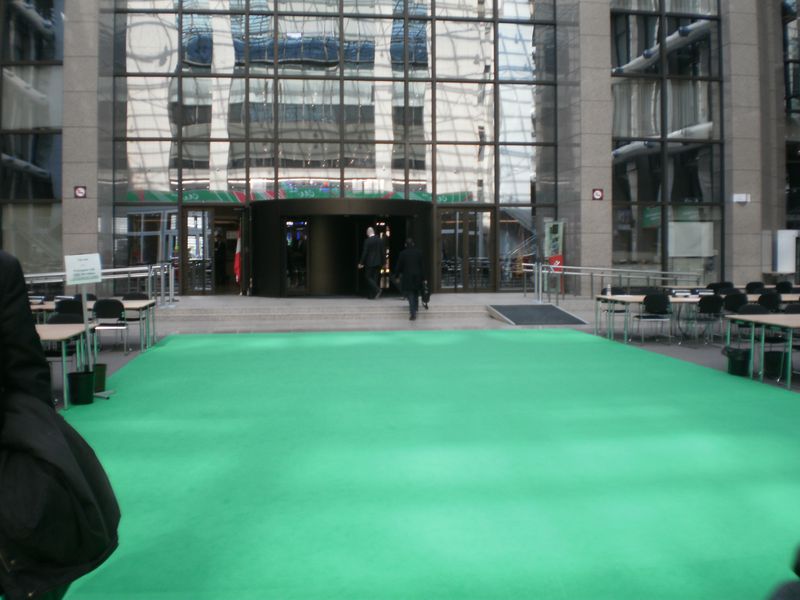 | © Ralitsa Kovacheva | www.euinside.eu
| © Ralitsa Kovacheva | www.euinside.eu